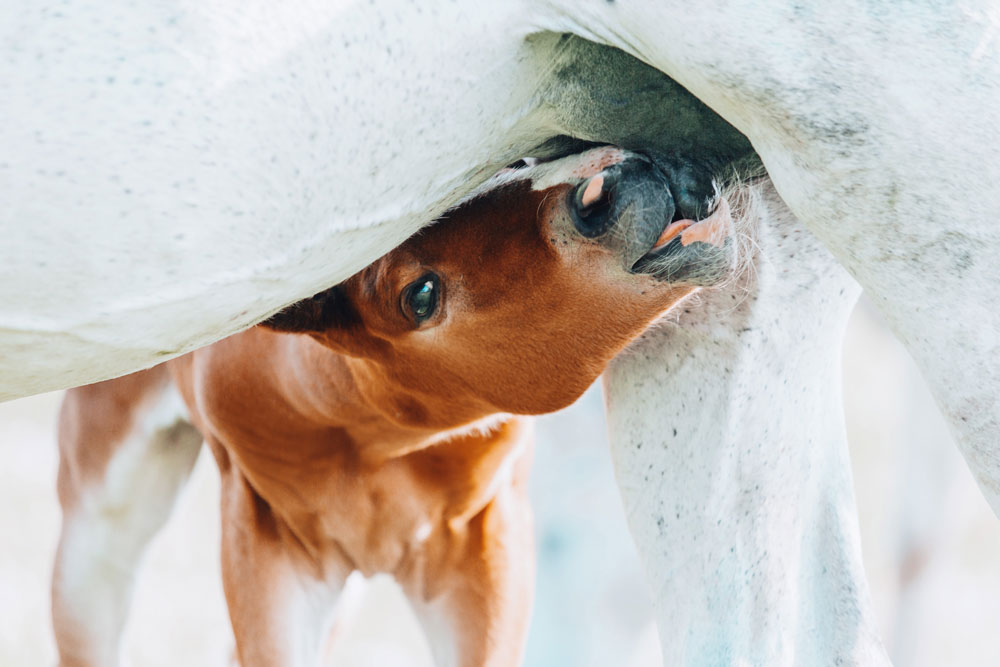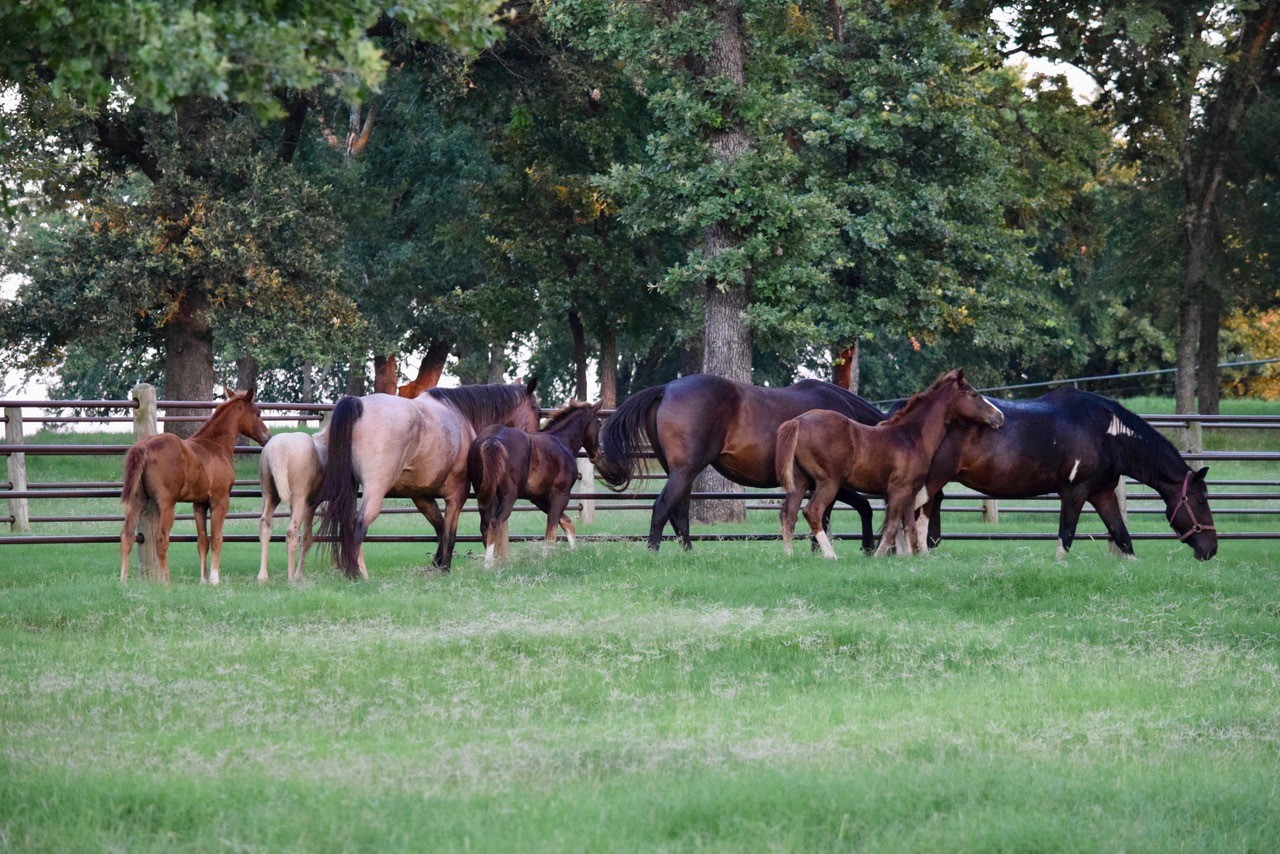If you spend any time walking through the tradeshow at a decent-sized horse event these days, you’ll see feed companies and their products everywhere you turn. They’re advertising different types of processed feed for horses in all walks of life, with very specific needs, and significant variations in ingredients. Big name corporations and smaller companies, established businesses and start-ups are side by side hawking their wares.
The problem is that horses in their natural habitat weren’t designed to eat this stuff. And we tend to feed it to our horses in a couple large meals a day, which is more for our convenience than their health.
The result is that today’s horse is more prone than ever before to having digestive issues. And the symptoms of digestive imbalance aren’t just the serious conditions like colic and ulcers. It can manifest in your horse’s performance, attitude, body condition, ability to recover from exercise – all less obvious but just as detrimental to your horse’s well-being.
The Problem With 2 Scoops and 2 Flakes Twice a Day
Horse care has evolved in recent decades to where accepted practice is to feed your horse twice a day, providing a few flakes of hay and a big scoop of some kind of processed feed. He may get a few hours or even a full day of turnout before coming back in for the night and his evening feed. And your horse probably looks just fine living on this schedule. He’s not sick, his weight is good, and on the surface everything appears to be fine and dandy.
But inside, his digestive tract isn’t built to handle this type of feeding routine.
Horses are meant to be free-roaming, grazing creatures. In the wild, they’ll spend up to 18 hours a day grazing and wandering for miles in the process. They have primarily forage diets, and only eat what grains happen to be in seed. They eat small amounts of fibrous food constantly. They don’t exert a whole lot of energy.
When horses get just a few meals per day and spend hours without anything to eat, the acids in the stomach aren’t buffered as well and food moves through their system too fast. High-starch grains also move through the system very quickly, and then cause a lot of problems when they reach the hindgut and haven’t been digested fully. The extra starch disrupts the balance of the natural microorganisms involved in hindgut fermentation – increasing the acidity, killing good bacteria, and releasing toxins.
These problems can make your horse uncomfortable in his gut, which can be the source of stall vices, attitude issues, and even performance and training problems like resistance to bending and collection. On the clinical side, it can cause ulcers and colic.
And food isn’t digested as well, so your horse might not be getting the full nutritional value, making his coat dull, keeping him from gaining proper weight, or leaving him lethargic.
How To Feed A Horse For Overall Health
There are a few key things we can do as horse caretakers to make sure our horses’ digestive tracts are running at 100 percent.
- slow down his grain intake by feeding smaller amounts more times per day or mixing with chaff (chopped hay) to force him to chew more
- increase forage and decrease grain
- when not turned out on grass, make sure your horse has constant access to hay
We all have the best interests of our horses at heart. Let’s make sure that includes the best interests of their digestive systems!



